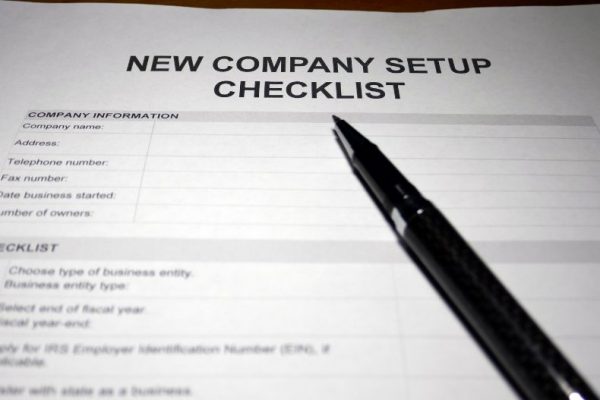Starting a business can be very fulfilling and it can change your life completely. However, it doesn’t come without its challenges.
From writing a business plan to figuring out the best ways to reach out to prospective customers, running your own business means staying ahead of any possible problems and avoiding making mistakes.
In this article, we outline 4 key things you must keep in mind when starting a business.

1. The Steps to Develop a Business Plan
A business plan is a document that will allow you to analyze the current state of the market and the industry, and your competitors, as well as describe your future company, its structure, and its operations in detail, prepare a marketing strategy, a financial plan, and so on. With this information, you will essentially build a guide to go from a good idea to a hopefully successful company.
This document is also crucial in obtaining financing, should you need to, from banks or other financial institutions, investors, and so on. It’s a living document that can be constantly updated, as things progress, helping you to not only start your business but also eventually scale it.
The easiest way to ensure that your business plan contains all the necessary information and will serve its purposes best is to find a simple business plan template and follow its instructions. Typically, a business plan is made up of several sectors including an executive summary, a company overview, an analysis of the industry, the customers, and the competition, as well as plans for your marketing strategy, the business operations, and the finances.
2. Legal Requirements
Depending on the industry, their size, their structure, and so on every business must follow certain laws and regulations.
Registration
The first step to registering a company is to choose the most suitable legal structure. The four most common business structures are sole proprietorship, partnership, limited liability company (LLC), and corporation. Furthermore, once you have chosen your business name, you will have to register it. The process will depend on your choice of business structure, and it may sometimes also depend on the state. Finally, you will have to register with the IRS to obtain an EIN (Employer Identification Number) and a state tax ID number, if it’s required.
Permits and Licenses
To be able to work legally and start making a profit, businesses need the right licenses and permits. Different businesses will of course need different licenses and permits, and they may also differ from state to state.
Compliance Audits
When you are starting a new company, knowing the ins and outs of your industry can be key to succeeding. Companies that handle sensitive data are required to prove that they are capable of providing the necessary security measures.
So before starting your business, you should learn about the reports that you might need for any kind of compliance audit. Investing in proof of compliance, such as SOC 2, ISO, HIPAA, or FISMA report, depending on your company’s scope of work – in other words, in compliance audits for data protection, payroll, health, and safety – can help you operate more efficiently, establish yourself as a trustworthy company and an authority in your field, as well as avoid fines for non-compliance.
Insurance
Protection is an important thing to consider when starting your business. Countless things can go wrong, even if you aren’t operating in one of the most dangerous sectors. Some types of insurance policies, such as workers’ compensation insurance, or unemployment are typically required by law. Nevertheless, you should also invest in other policies that can protect you from different potential risks.
Consider getting a policy that includes the most suitable coverage, including general liability insurance, business interruption insurance, commercial property insurance, commercial auto insurance, or tools and equipment insurance. To protect your budget, besides yourself, your employees, and your business, you can purchase a package that suits your requirements best, rather than choosing one or the other.
3. Buyer Persona
A buyer persona is an imagined individual you would be interested to buy what you are selling. Figuring out the common characteristics of your target audience can help you find the best and most effective ways to reach them and attract them to your brand. While this isn’t an exact science, since not all consumers are equal, and people outside of this profile can also be interested in your products or services, identifying an ideal buyer, will tell you how to communicate with your target audience, which channels to use and help you fine-tune your overall marketing strategies.
4. The Right Objectives and Goals
It’s a mistake to start your entrepreneurial adventure without knowing precisely what you want to achieve. This is why your goals should be specific, measurable, achievable, relevant, and time-bound. Such goals are named with the clever acronym – SMART goals. To put it simply, you should know exactly what you want to achieve, you should be able to calculate the success of the strategies you’ve established to achieve your goals, you should aim for realistic results, and you should have a time frame of achieving them.
Conclusion
Finally, you must have in mind that in business there aren’t guarantees. However, being prepared is the best way to give your future company a chance to succeed. We hope the abovementioned tips will help you on your journey. If you want to know more about starting a business, you can find relevant information at companyformationamerica.com.